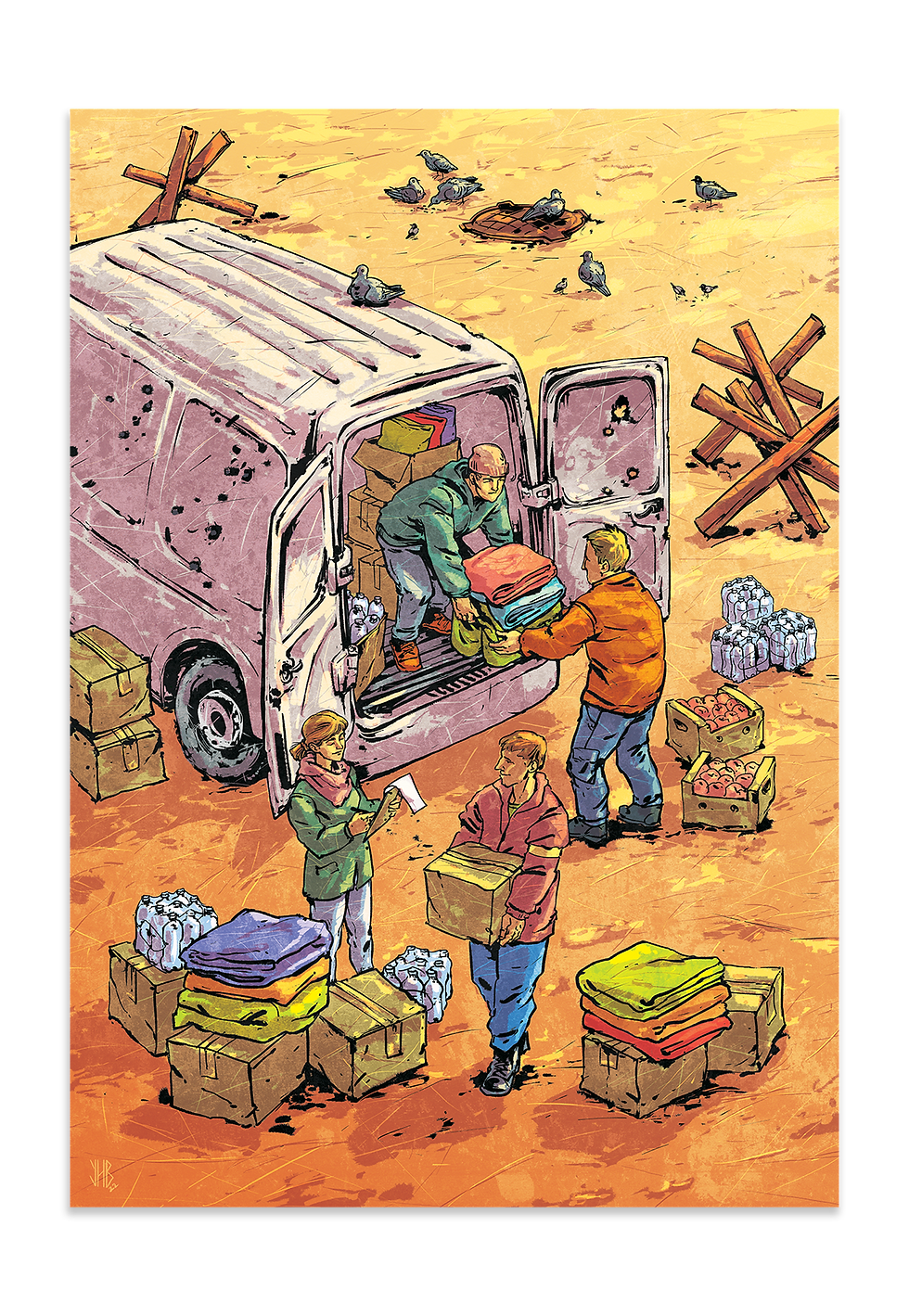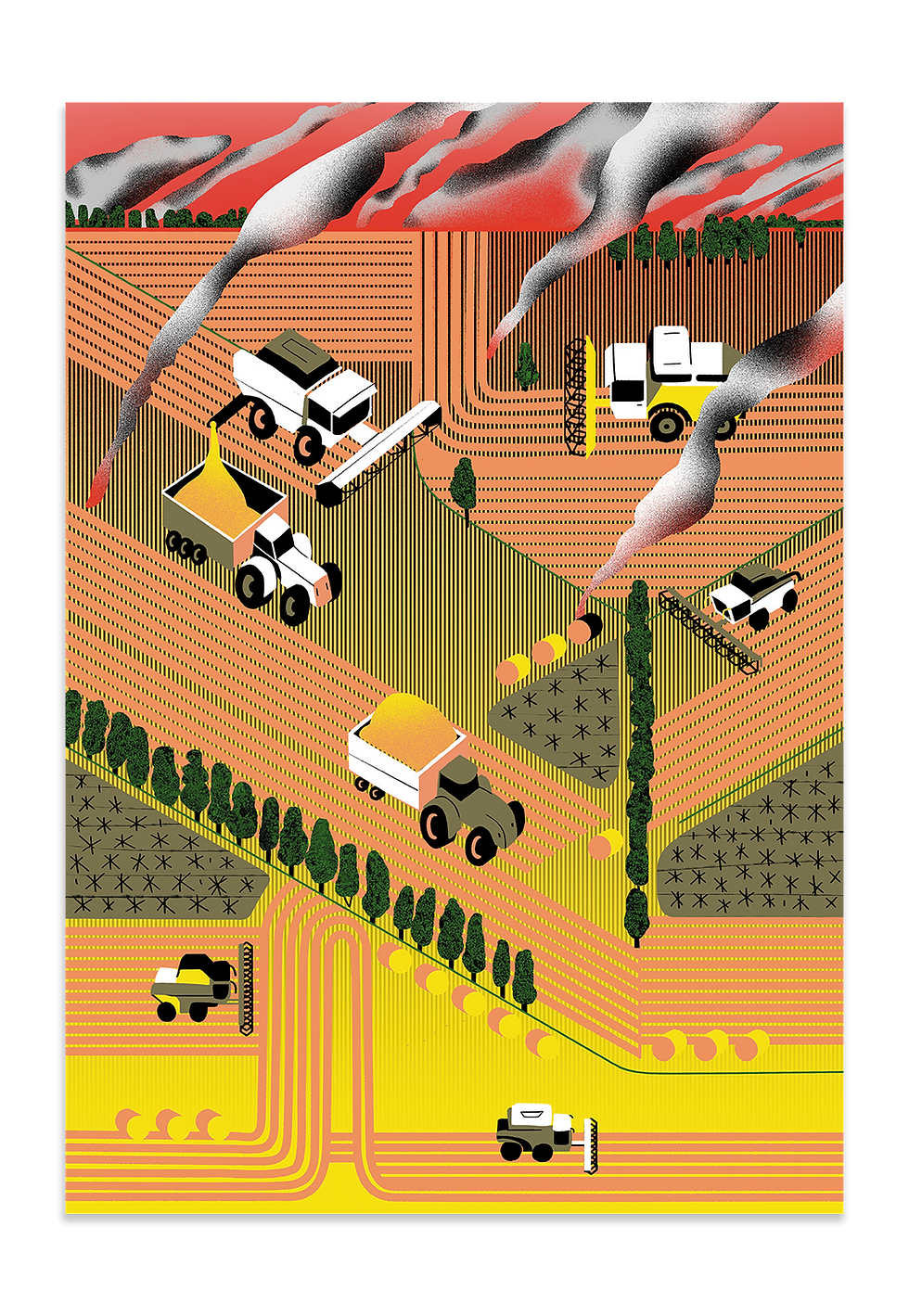Evacuation of people with reduced mobility
- Dec 3, 2022
- 2 min read
Illustration: #AnnaSarvira

Evacuating from hot spots is a difficult task for anyone, but people with reduced mobility are often helpless in the face of war. Especially when they don't have relatives nearby to help them get to a safe place. In such situations, the less mobile categories of the population can only rely on volunteers.
Ihor, a teacher of French from Chernivtsi, became a real hero for people with reduced mobility. Together with his team, in the span of four months of full-scale war, Ihor managed to take out almost one and a half thousand people from the frontline cities. At the same time, the man didn’t stop working: he simply gave lectures to students via video calls from the road.
Volunteers went to Luhansk and Donetsk Oblasts, from where requests for evacuation came to the hotline. People who can’t move on their own have to be transported from home to specially equipped transport, which takes a lot of time. Some people are completely helpless, so they also need to be cared for, clothed, and fed. This is especially difficult under constant fire at close range.
In one instance, Ihor and his team didn’t have time to get to a patient, because the house came under Russian fire.
However, taking a person out is only half the battle. Next, it is necessary to find care and housing for them, while hospices and geriatric boarding houses are currently overcrowded in Ukraine, and not everyone has relatives. So another volunteer from the team, Dmytro, is directly involved in the resettlement of evacuated people with reduced mobility. If the patient has no relatives, and the person's condition doesn’t allow them to take care of themselves, volunteers ask for help from foreign charity organizations.
Ihor perceives assistance to less mobile categories of the population as a manifestation of humanity and mutual support. After all, taking care of all people in times of war, especially the weakest ones, is a sign that society is moving in the right direction.




Comments